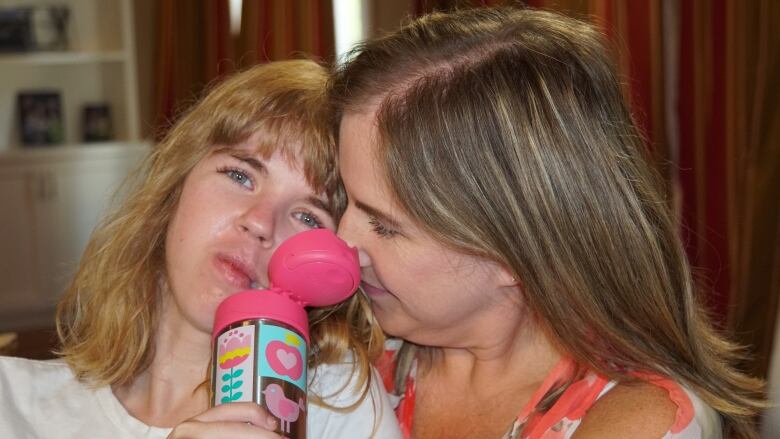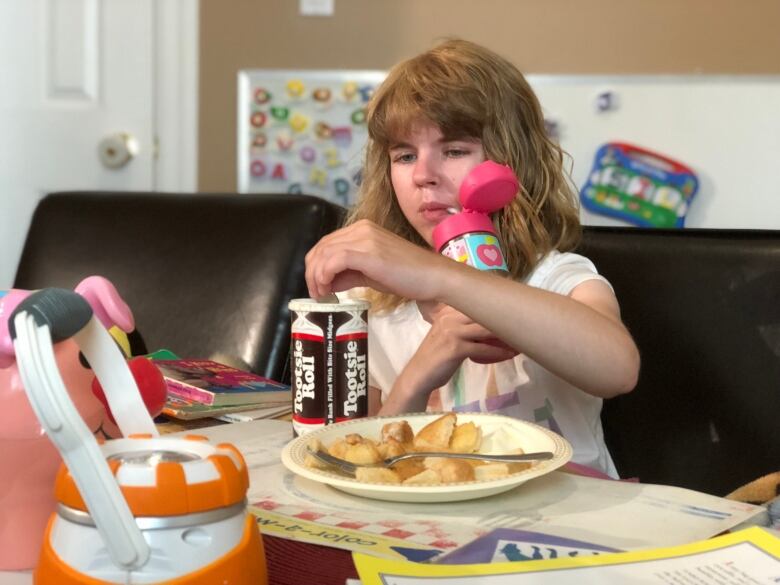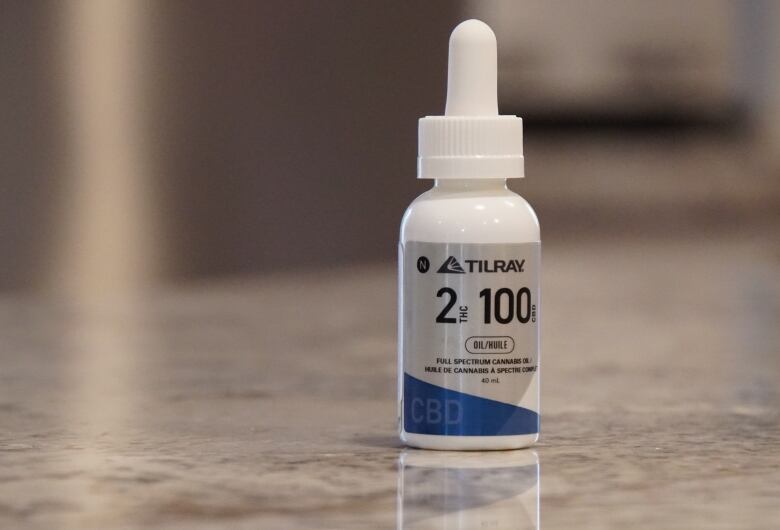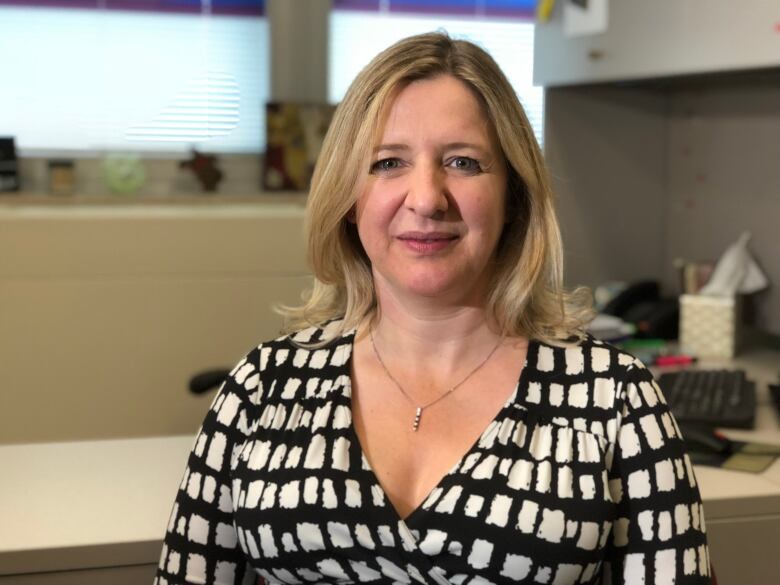'It's life changing': Mom credits new cannabis oil study with helping daughter's epilepsy
New study finds almost 2 thirds of participants had at least a 50% reduction in seizures

For much of her life, 16-year-old Abigail Weightman lived in a haze.
The Pickering resident suffers from Dravet Syndrome an incurable, rare form of epilepsy that causes seizures, significant developmental delays and learning disabilities.
Her family tried 14 different medications over the years to manage her seizures, said Abigail's mother, Laura.
Nothing really worked,until she became part of a new study onthe effects of cannabis oil on children with drug-resistant epilepsy. Before the study, Abigailwas having eight to 10 seizures a month. Since trying this specific cannabis oil treatment, she has only had three seizures in all of 2018, and none in the last two months.
"It's amazing," Laura Weightman said. "It's life changing."
When you see your child have a seizure, you'll do anything to stop them.- Laura Weightman
The study, which was conducted byToronto's SickKids Hospital and sponsored by medical cannabiscompany Tilray, is the first Canadian pediatric study of mixed THC and CBD cannabis oil, said Dr. Blathnaid McCoy, staff neurologist at SickKids.
The peer-reviewed study was published Wednesdayin the Annals of Clinical and Translational Neurology.
"We found that 63 per cent of kids had at least a 50 per cent reduction in their seizures," McCoy said.
"We also found an overall improvement in quality of life."

Not like recreational marijuana, doctor says
The study centred on finding safe dosing and tolerance levels for cannabidiol (CBD) and tetrahydrocannabinol (THC), which are the two main components of cannabis.
THC has psychoactive effects and is commonly associated with the high of smoking pot, while CBD is associated with pain relief though experts say there isn't enough evidence to make sweeping health claims about its benefits.
Study participants used a dropper to administer cannabis oil orally at a 50-to-1ratio so 100 milligrams of CBD per millilitre, versus two milligrams per millilitre of THC.

The side effects, like diarrhea and loss of appetite, were mild, McCoy said. No participants dropped out of the study.
McCoy also stressed that no children got high.
"It's not recreational marijuana," she said. "It has nothing to do with the high associated with drug use."
What it did for Abigail, her mom says, was bring her out of a haze brought on by medications and the aftermath of multiple seizures. Some days, before the trial, she would just sit there watching a movie with a blank expression, with her family unsure if she was even taking it in.
Recuperation after a seizure was also tough. Her balance and coordination would be thrown off, and she wouldn't speak or eat.
That has all changed.
"It has made her energetic, busy and active," her mom said.
'She's a part of the world now'
Abigail has taken to exploring the family's home in a way she never did before, so child-proof locks are now installedon some of the doors. She loves jumping on a trampoline, biking on a three-wheeler, and doing puzzles.
The world has just opened up for her, her mom says. "She's a part of the world now."
Cody Harris, an assistant professor at the University of Ottawa in the school of epidemiology and public health, told CBC News that you have to view a study like this one "cautiously," becausethere were only 20 participants.

"But very few drugs have data that involves children," he said.
"This is certainly enough to warrant more research."
He also said there is an inherent stigma when it comes to using cannabis as a medical treatment, especially when children are involved.
"I definitely think we have a ways to go before people see cannabis as a legitimate medical treatment across the board."
Another downside is the treatment is currently prohibitively expensive. While the oil was covered when Abigail was an active study participant, it's now costing herfamily $900 a month, and that's with a "compassionate" discount from the manufacturer.
The treatmentis not currently covered under OHIP or insurance plans.
"It's not accessible to a lot of families," Weightman said.
"But when you see your child have a seizure, you'll do anything to stop them."












_(720p).jpg)


 OFFICIAL HD MUSIC VIDEO.jpg)
.jpg)



























































































